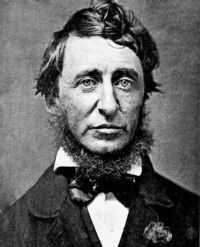How to Remember What You Read
Curated from: fs.blog
Ideas, facts & insights covering these topics:
10 ideas
·11.7K reads
34
1
Explore the World's Best Ideas
Join today and uncover 100+ curated journeys from 50+ topics. Unlock access to our mobile app with extensive features.
Active vs Passive Readers
Passive readers forget things almost as quickly as they read them. Active readers, on the other hand, retain the bulk of what they read.
The more that active readers read, the better they get. They develop a latticework of mental models to hang ideas on, further increasing retention. Active readers learn to differentiate good arguments and structures from bad ones.
Passive readers who read a lot are not much further ahead than passive readers who read a little.
290
1.93K reads
“Every time I read a great book I felt I was reading a kind of map, a treasure map, and the treasure I was being directed to was in actual fact myself. But each map was incomplete, and I would only locate the treasure if I read all the books, and so the process of finding my best self was an endless quest. And books themselves seemed to reflect this idea. Which is why the plot of every book ever can be boiled down to ‘someone is looking for something’.”
MATT HAIG
251
2.32K reads
Filter Your Reading
There are no rules when it comes to choosing books. We don’t have to read bestsellers, or classics, or books everyone else raves about.
Focus on some combination of books that: stand the test of time; pique your interest; or resonate with your current situation.
The more interesting and relevant we find a book, the more likely we are to remember its contents in the future.
259
1.26K reads
Get Some Context of the Book
For older books, try to understand the historical context. For books written in an unfamiliar country, try to understand the cultural context.
Some helpful questions to ask include:
- Why did the author write this?
- What is their background?
- What else have they written?
- Where was it written?
- What was the political, economic, and cultural situation at the time of writing?
- Has the book been translated or reprinted?
- Did any important events happen during the writing of the book?
275
1.05K reads
Know Your Why
What are you reading this book for? Entertainment? To understand something or someone you don’t know? To get better at your job? To improve your health? To learn a skill? To help build a business?
You have to have some idea of what you want to get from the book. You don’t just want to collect endless amounts of useless information. That will never stick.
261
882 reads
Intelligent Skimming
Before starting to read a book (particularly non-fiction), skim through the index, contents page, preface, and inside the jacket to get an idea of the subject matter.
244
1.26K reads
Match the Book to Your Environment
Matching books to our location and circumstances can be powerful. Books will have a greater resonance as they become part of an experience rather than just supplementing it.
Take a look at your own situation and decide on genres or authors that might help you overcome any current challenges. Whatever your state of affairs, someone has been in the same place. Someone has felt the same feelings and thought the same thoughts and written about it. It’s up to you to find that book.
240
647 reads
“In the quiet spaces opened up by the prolonged, undistracted reading of a book, people made their own associations, drew their own inferences and analogies, fostered their own ideas. They thought deeply as they read deeply.”
NICHOLAS CARR
229
757 reads
Take Notes and Mark Up the Book
Making notes is an important foundation for reflecting and integrating what you read into your mind. Start by writing a short summary of each chapter and transcribing any meaningful passages or phrases.
Jot down connections and tangential thoughts, underline key passages and make a habit of building a dialogue with the author.
The more you write, the more active your mind will be while reading.
261
910 reads
"Books are the treasured wealth of the world and the fit inheritance of generations and nations. Books, the oldest and the best, stand naturally and rightfully on the shelves of every cottage. They have no cause of their own to plead, but while they enlighten and sustain the reader his common sense will not refuse them. Their authors are a natural and irresistible aristocracy in every society, and, more than kings or emperors, exert an influence on mankind."
HENRY DAVID THOREAU
217
708 reads
IDEAS CURATED BY
I am the developer of my life; I build its foundation and choose its contents.
D. A. Majid's ideas are part of this journey:
Learn more about education with this collection
How to find purpose and meaning in life
How to cultivate gratitude
Techniques for managing negative thoughts
Related collections
Similar ideas
5 ideas
5 ideas
4 ideas
Read & Learn
20x Faster
without
deepstash
with
deepstash
with
deepstash
Personalized microlearning
—
100+ Learning Journeys
—
Access to 200,000+ ideas
—
Access to the mobile app
—
Unlimited idea saving
—
—
Unlimited history
—
—
Unlimited listening to ideas
—
—
Downloading & offline access
—
—
Supercharge your mind with one idea per day
Enter your email and spend 1 minute every day to learn something new.
I agree to receive email updates



